Education
Cornell student activist asked to surrender to ICE

The Department of Justice on Friday asked a Cornell University student who is suing the Trump administration after helping lead campus protests last year to surrender to immigration authorities, according to a new court filing.
Lawyers for Momodou Taal, a Ph.D. student who is a U.S. visa holder and a dual citizen of the United Kingdom and Gambia, said in court documents that he received an email from a Department of Justice lawyer with a notice to appear — which initiates the deportation process — and an invitation to surrender to U.S. Immigration and Customs Enforcement.
The email did not specify when the Justice Department expects Taal to surrender to immigration authorities.
Eric Lee, one of Taal’s attorneys, told NBC News on Saturday that in the days before the email was sent, unidentified authorities showed up outside Taal’s student apartment building and began asking other residents about him. The building’s staff then asked the authorities to leave, Lee said.
“It is not yet clear what grounds for removal the government alleges exist here,” Lee said in his court filing on Friday, adding that Taal has been living in the U.S. and has been admitted into the country multiple times.
“The only changes between Mr. Taal’s last admission and now are the executive orders and the initiation of this legal action challenging them” the court filing reads. “It is plain that the government’s effort to serve and detain Mr. Taal are in reaction to this litigation.”
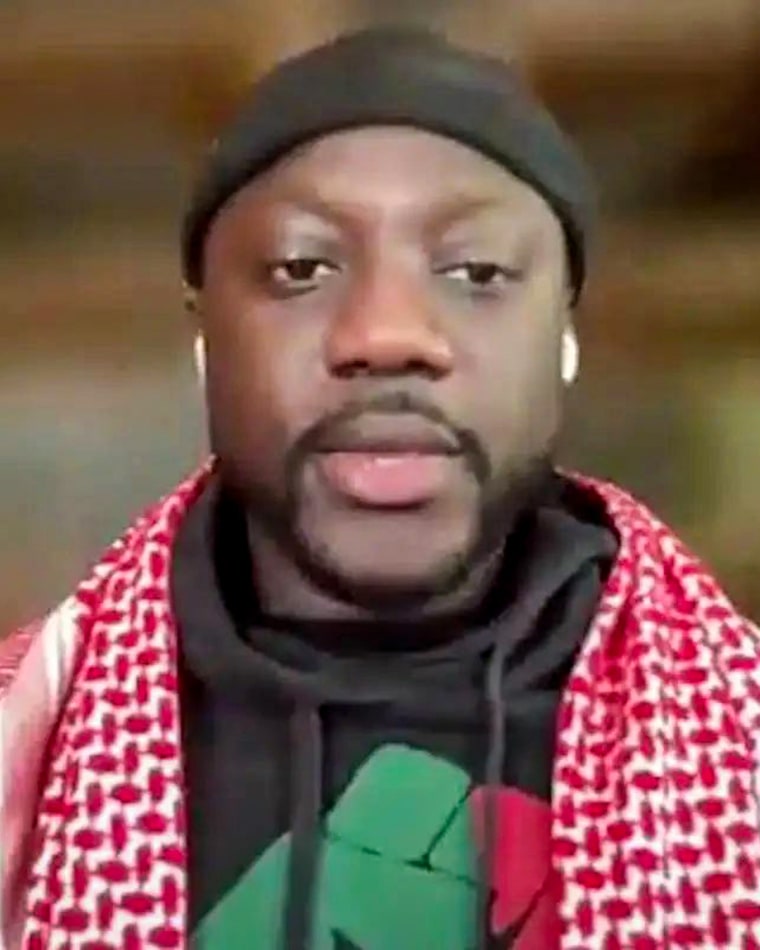
Lee told NBC News the court asked the Justice Department to explain its actions by 5 p.m. Saturday.
The Department of Justice did not immediately respond to a request for comment or questions about which agency sought out Taal at his home.
Cornell University did not immediately respond to NBC News’ request for comment. The Department of Homeland Security also did not respond.
Last weekend, Taal and two U.S. citizens challenged the Trump administration’s executive orders to “combat anti-semitism” on college campuses and expel foreign nationals who the administration says pose national security threats.
Taal, 31, and the other plaintiffs have argued that the orders violate the free speech rights of international students and scholars who protest or express support for Palestinians in Gaza.
Taal’s case comes amid a wider effort by the Trump administration to exert leverage in the affairs of private institutions of higher education.
Earlier this month, the administration alarmed many observers when immigration officials arrested Mahmoud Khalil, a Columbia University graduate student who led similar protests at the school last year. Khalil is fighting his deportation while detained in Louisiana. Lee said Kahlil’s arrest heightened Taal’s concerns about being apprehended by immigration authorities and helped prompt his lawsuit.
The Trump administration has cited an obscure national security clause in the Immigration and Nationality Act of 1952 to justify Khalil’s apprehension. The provision allows the secretary of state to deport noncitizens if the secretary determines their presence in the United States could adversely affect foreign policy.
Secretary of State Marco Rubio said on X earlier this month that the department would be revoking visas and green cards of noncitizens who he claims support Hamas.
Immigration officials arrested a second Columbia student, Leqaa Kordia, a Palestinian from the West Bank who officials say overstayed her student visa. A third Columbia student, Indian national Ranjani Srinivasan, fled to Canada after her student visa was revoked. Srinivasan has claimed she did not participate in the campus protests last spring.
A doctor and professor from Brown University was deported this month after attempting to return to the U.S. from a trip to Lebanon. Homeland Security officials said Monday that the professor told them she attended the funeral of Hassan Nasrallah, the slain leader of Iran-back Hezbollah.
Most recently, a graduate student who was teaching at Georgetown University on a student visa was detained this week.
The Trump administration has also gone after the universities themselves in retaliation for the protests on college campuses last year.
On March 7, the administration announced it was stripping Columbia — which was the epicenter of the protests — of $400 million in federal grants. This week, the White House said in a statement it was pausing $175 million in federal funding to the University of Pennsylvania for allowing a transgender swimmer to compete on its women’s team.
In an effort to start negotiations on restoring the federal funding, Columbia on Friday agreed to demands outlined by the Trump administration.
The university will now ban students from wearing masks at protests in most cases, modify its admissions process, hire 36 new campus security officers — who, unlike previous security officers, will have the ability to arrest students — and appoint a new senior vice provost to oversee the department of Middle East, South Asian and African studies.
The moves have prompted some new protests and raised concerns nationwide about the federal government’s infringement on free speech. Some students and professors at Columbia told NBC News in recent weeks that they fear the government will come after them if they speak out.
Protests are scheduled to resume at Columbia on Monday.
Education
Harvard sues the Trump administration over move to block foreign student enrollment
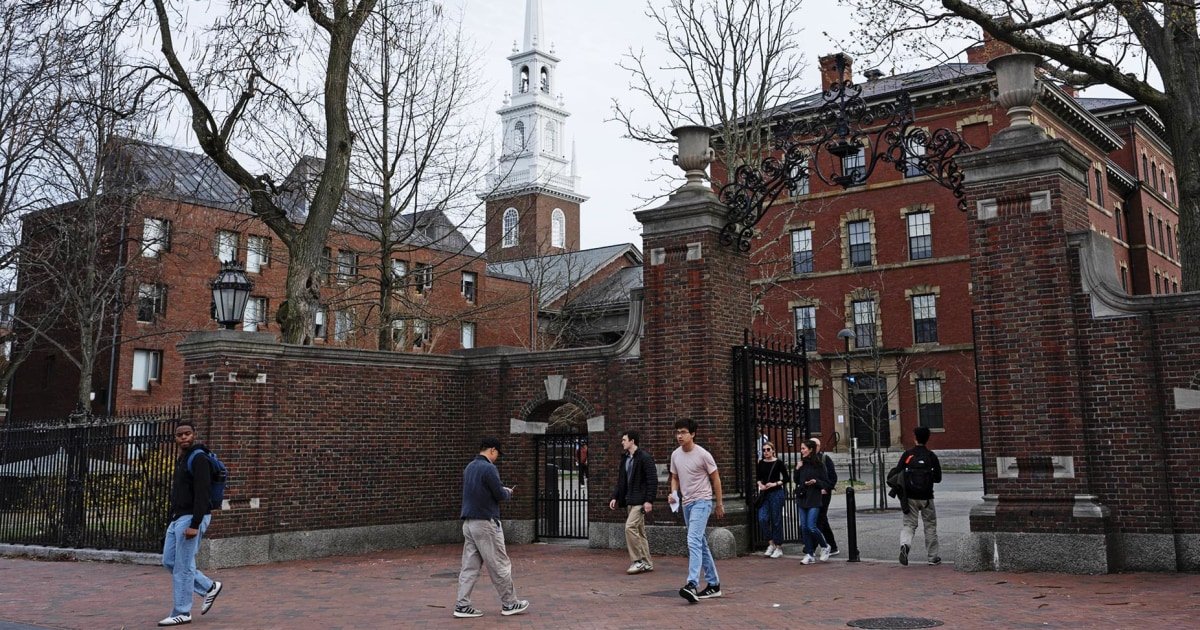
Harvard University sued the Trump administration on Friday, a day after the federal government said it would block the nation’s oldest university’s ability to enroll foreign students.
In a complaint filed in a U.S. District Court in Massachusetts, Harvard argued that the administration’s effort to block foreign students from enrollment violates the university’s First Amendment rights and would dramatically alter its ability to operate.
“With the stroke of a pen, the government has sought to erase a quarter of Harvard’s student body, international students who contribute significantly to the University and its mission,” the complaint states.
On Thursday, the administration terminated Harvard’s Student and Exchange Visitor Program certification, forcing the university’s foreign students, roughly a fourth of its student body, to either transfer or lose their legal status.

In the complaint — which names Homeland Security Secretary Kristi Noem, Secretary of State Marco Rubio and Attorney General Pam Bondi among the defendants — Harvard accuses the government of “clear retaliation for Harvard exercising its First Amendment right to control Harvard’s governance, curriculum and the ‘ideology’ of its faculty and students.”
Department of Homeland Security spokesperson Tricia McLaughlin called the lawsuit an attempt to “kneecap the President’s constitutionally vested powers.”
“It is a privilege, not a right, for universities to enroll foreign students and benefit from their higher tuition payments to help pad their multibillion-dollar endowments,” she said in a Friday statement. “The Trump administration is committed to restoring common sense to our student visa system; no lawsuit, this or any other, is going to change that.”
White House spokesperson Abigail Jackson said in a statement that “Harvard should spend their time and resources on creating a safe campus environment.”
“If only Harvard cared this much about ending the scourge of anti-American, anti-Semitic, pro-terrorist agitators on their campus, they wouldn’t be in this situation to begin with,” Abigail Jackson said.
The State Department and the Justice Department did not immediately return requests for comment.
The editorial board of the Crimson, the school’s student newspaper, released an op-ed ahead of the lawsuit’s announcement Friday, criticizing the Trump administration’s action against the school.
“In his ongoing feud with Harvard, Trump has decided that Harvard’s 6,000 international students are acceptable collateral damage,” the editorial board wrote. “They studied at America’s most storied institution. Through no fault of their own, they may leave with nothing.”
The university refused to comply with sweeping reforms from the administration’s Task Force to Combat Anti-Semitism last month, which included who Harvard can admit or hire, and subjecting its faculty to a government audit.
“We condemn this unlawful and unwarranted action,” Alan M. Garber, Harvard’s president, said Friday in a letter to the university’s community. “It imperils the futures of thousands of students and scholars across Harvard and serves as a warning to countless others at colleges and universities throughout the country who have come to America to pursue their education and fulfill their dreams.”
The lawsuit was the second the university filed against the administration within recent weeks.
Harvard sued the administration last month to recoup over $2 billion in federal research funding that the administration stripped the university of after refusing the reforms.
Education
Overseas schools are eager to take international students affected by Trump’s Harvard ban
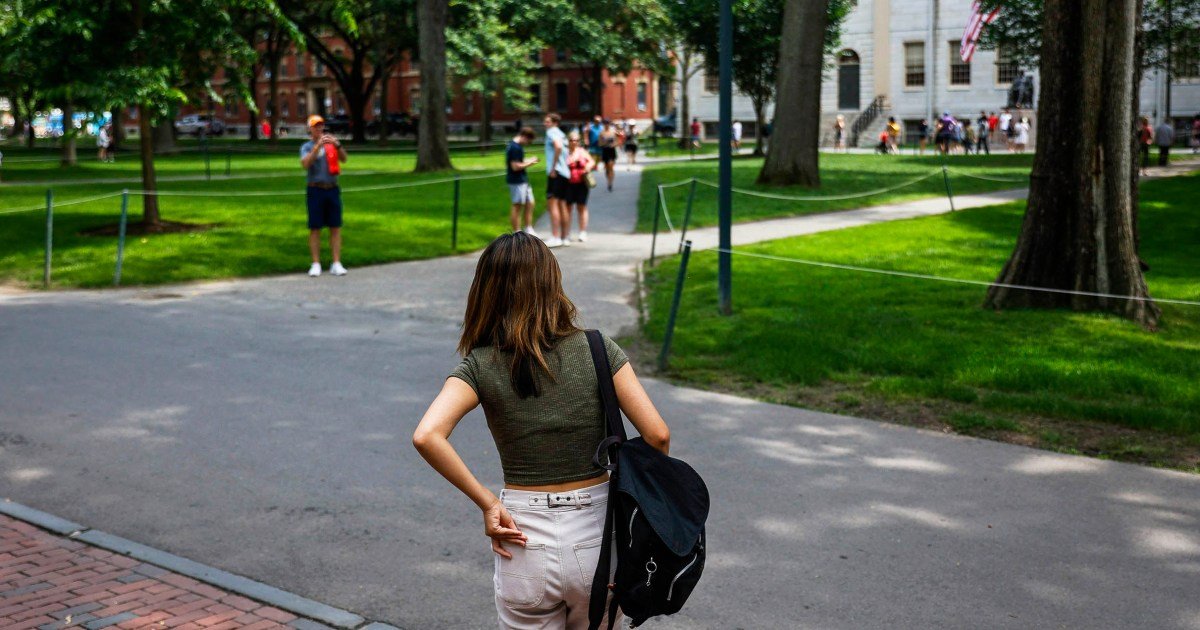
HONG KONG — If President Donald Trump doesn’t want international students at Harvard, there are plenty of foreign governments and universities happy to take them — along with their talents that have helped make the United States a global tech and scientific leader.
The future of international students at the oldest, richest and most renowned university in the U.S. is uncertain after the Trump administration announced a ban on their enrollment starting in the 2025-26 academic year.
After Harvard refused to turn over extensive data about its international students, Homeland Security Secretary Kristi Noem said the school was being held accountable for “fostering violence, antisemitism, and coordinating with the Chinese Communist Party on its campus.”
Harvard has sued over the move, calling it unlawful, and on Friday a federal judge in Boston put it on hold for two weeks. If the Trump administration prevails, new international students would be barred from enrolling at Harvard while current ones would be forced to either transfer elsewhere or lose their legal status.
U.S. universities including Harvard rely heavily on international students, who often pay far more in tuition than their American classmates. Many of them end up staying in the U.S., where they have been responsible for major breakthroughs in strategically important fields such as artificial intelligence where the U.S., China and other nations are locked in intense competition.
Trump’s campaign against Harvard is a “terrible policy error” that could undermine the world-leading role the U.S. has played in research and development since World War II, Simon Marginson, a professor of higher education at the University of Oxford, told NBC News in an email Monday.
A downturn in international students would affect American universities’ “talent pipeline” and income, while benefiting U.S. competitors, he said. “China will become significantly more attractive than before to students and researchers from the Global South,” he said, adding that “Western Europe will also gain significantly.”
There was already growing unease among international students at U.S. universities amid anti-immigrant rhetoric by Trump, in addition to deep funding cuts and efforts to intervene in universities’ internal operations. Hundreds of students’ visas have been revoked, while the Trump administration has detained and sought to deport others over pro-Palestinian and other activism.
At Harvard, more than a quarter of the student body of about 25,000 comes from overseas and the looming ban has caught up students from more than 140 countries, including the future queen of Belgium.
Harvard’s biggest group of overseas students, about 20%, come from China, which was long the top source of international students in the U.S. before being overtaken by India last year.
The number of Chinese students in the U.S. has been dropping —to about 277,000 during the 2023-24 school year, compared with more than 372,000 in 2019-20 — due to disruptions from the Covid-19 pandemic as well as growing U.S.-China tensions.
Chinese academics were also driven away by the China Initiative, a national security program from Trump’s first term that drew accusations of racial profiling. Many of them have moved their research to Chinese universities.
Responding to the Harvard ban, Beijing said U.S.-China educational cooperation is “mutually beneficial” and that it would “safeguard the legitimate rights and interests of Chinese students and scholars overseas.”
“China has consistently opposed the politicization of educational exchanges,” Foreign Ministry spokesperson Mao Ning said at a regular briefing in Beijing on Friday. “Such actions by the U.S. will only damage its own image and international credibility.”
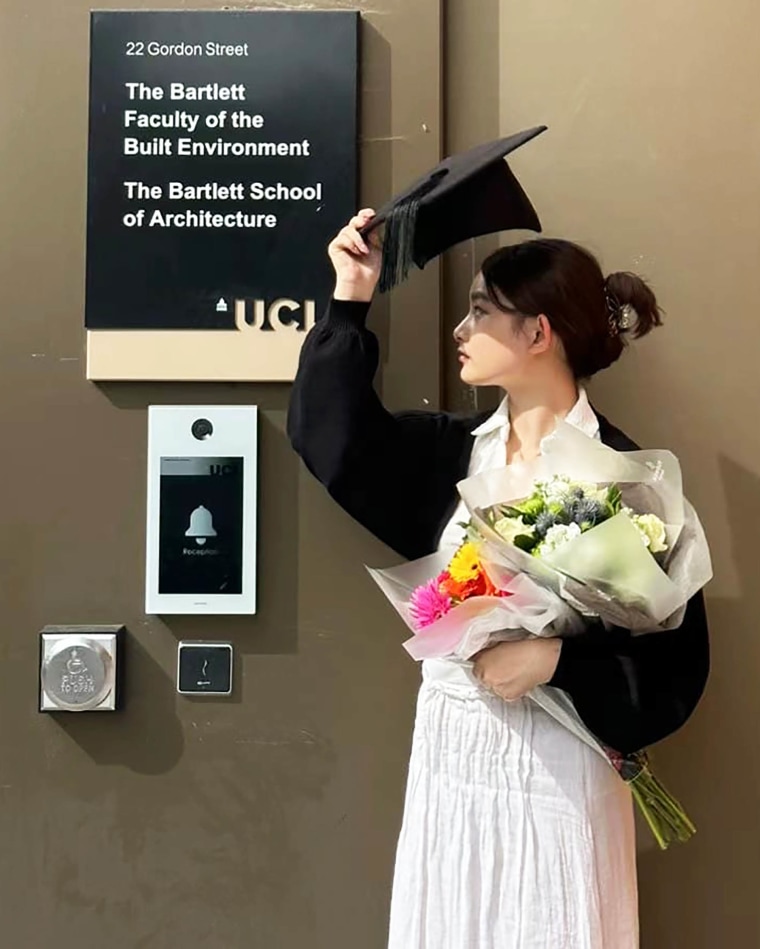
Izzy Shen, 23, an incoming Harvard student from Beijing, said her visa application was refused hours after Trump’s Harvard ban.
“I didn’t expect it to be so fast,” said Shen, whose application had already been marked “approved.”
Shen, who was admitted to Harvard’s Master in Design Engineering program, said she remained “relatively optimistic” and that the situation would “get clearer” after the injunction hearing Thursday.
Duo Yi, who was admitted to the PhD Public Policy program at Harvard Kenny School, said she is now exploring other options amid growing uncertainty about her enrolment. Trump is “simply too unpredictable,” she said. “I have no way of knowing what direction his future policies will take.”
Foreign governments and universities are not waiting to woo the Harvard students spurned by Trump. In the Chinese territory of Hong Kong, officials have urged universities to take proactive action “to attract top talent.”
Hong Kong’s “doors are wide open” to “any students who face discrimination and unfair treatment in the U.S.,” John Lee, the city’s top leader, said Tuesday.
Hong Kong has four universities in the top 100 of U.S. News & World Report’s Best Global Universities Rankings, which is topped by Harvard, though experts say academic freedom in the former British colony of 7.5 million people has eroded since Beijing imposed a national security law in 2020.
The Hong Kong University of Science and Technology said Friday that Harvard undergraduates and postgraduates, as well as students with confirmed offers of admission, were welcome to study there instead.
Europe has also sought to lure scientists worried about funding cuts and freedom of research under Trump, launching a $570 million initiative this month called “Choose Europe.”
Though she did not mention Trump by name, European Commission President Ursula von der Leyen emphasized “free and open research” in a speech promoting the initiative at Sorbonne University in Paris.
“As threats rise across the world, Europe will not compromise on its principles,” she said. “Europe must remain the home of academic and scientific freedom.”
Despite concerns about the Harvard ban, Alex Zeng, an overseas education consultant based in the southern Chinese city of Guangzhou, said American universities remained the top choice for many Chinese students.
“The rich still want to go to the U.S. for education,” Zeng said.
Education
Trump administration seeks to end all federal contracts with Harvard
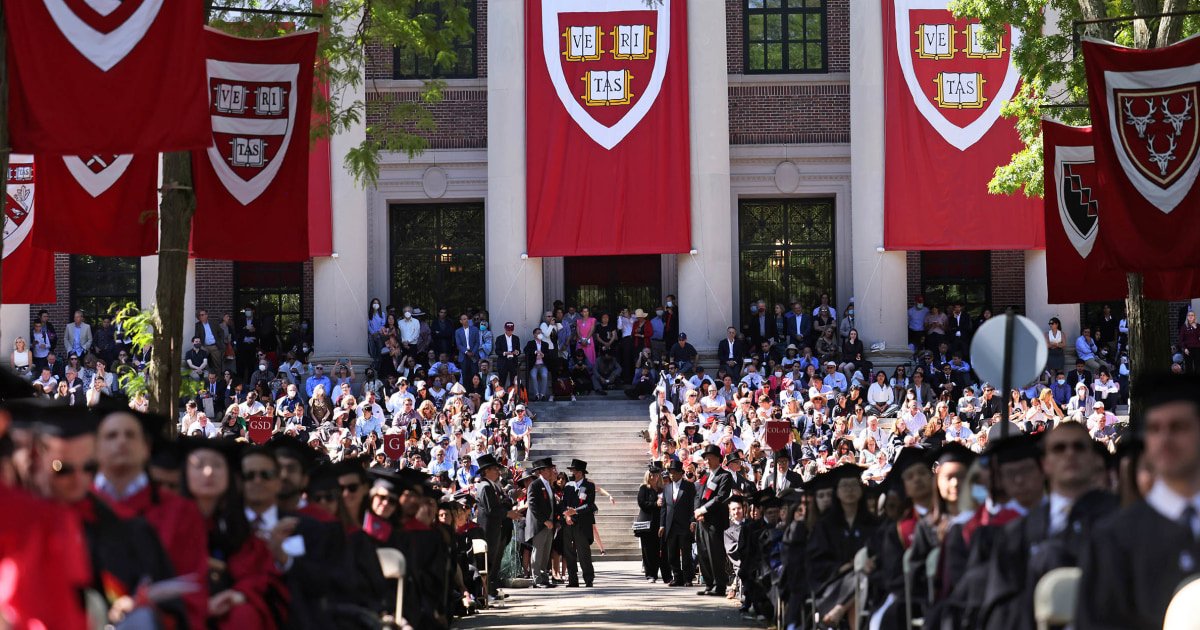
The Trump administration intends to ask all federal agencies to seek ways to end their contracts with Harvard University, a senior administration official told NBC News on Tuesday.
“GSA will send a letter to federal agencies today asking them to identify any contracts with Harvard, and whether they can be canceled or redirected elsewhere,” the senior official said, referring to the General Services Administration.
The development was first reported by The New York Times.
The aimed cuts mark the latest escalation in a monthslong fight between the Trump administration and the nation’s oldest — and arguably most prestigious — university.
A copy of the letter, obtained by NBC News, instructs agencies to respond to the GSA with a list of contracts they have terminated with the university by June 6.
“Going forward, we also encourage your agency to seek alternative vendors for future services where you had previously considered Harvard,” the letter, signed by John Gruenbaum, the commissioner of the GSA’s Federal Acquisition Service.
Gruenbaum described the administration’s actions as bolstering civil rights. He accused Harvard of defying a Supreme Court ruling that banned considering race in its admissions process and of “ongoing inaction” over the harassment of its Jewish students.
Harvard did not immediately return a request for comment.
The directive comes a day after Trump said in a post on Truth Social that he was considering taking $3 billion of grant money away from what he called “a very anti-Semitic” Harvard, and giving the funds to trade schools instead.
The feud between the government and Harvard largely stems from the university’s refusal to comply with sweeping demands from the Trump administration’s Task Force to Combat Anti-Semitism last month. The task force sought to review who Harvard can admit or hire and subject its faculty to a government audit.
In response, the administration stripped the university of $2 billion in federal research funding.
The administration also sought to block Harvard’s ability to enroll foreign students last week, an effort that was temporarily blocked by a federal judge after the university sued.
If the administration’s effort is successful, Harvard’s foreign students, who make up roughly a fourth of the university’s student body, would lose their legal status to stay in the United States and have to transfer to a different university.
-

 Africa4 days ago
Africa4 days agoSurvivor of Liverpool car ramming talks of shock and panic
-

 Sports3 days ago
Sports3 days agoThe Knicks are bringing hope and title dreams back to New York after years in the doldrums
-

 Lifestyle4 days ago
Lifestyle4 days agoFaizan Zaki hopes to go from spelling bee runner-up to champ
-

 Lifestyle3 days ago
Lifestyle3 days agoChildren and careers: Talking to kids about what they want to be when they grow up
-

 Lifestyle4 days ago
Lifestyle4 days agoHow to decorate a patio, balcony or other small outdoor space
-

 Middle East5 days ago
Middle East5 days agoHajj pilgrimage in Saudi Arabia to begin on June 4 | Religion News
-

 Middle East4 days ago
Middle East4 days agoGaza’s aid system isn’t broken. It’s working exactly as designed | Humanitarian Crises
-

 Europe5 days ago
Europe5 days agoMacron’s marital shove disappears from French airwaves




